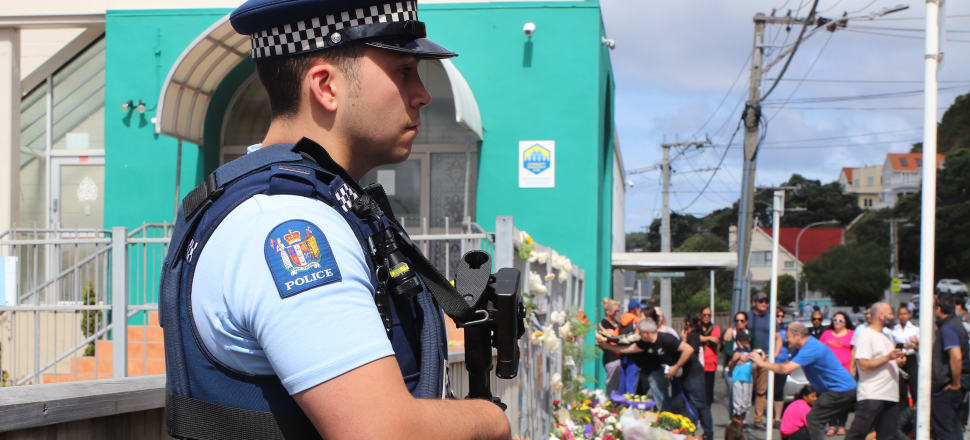
A police data team has identified more than 1400 hate crimes that weren't tagged as hate-motivated incidents in the past year
Frontline police and staff working counters at police stations are still failing to recognise hate crimes when they're reported, according to data released to Newsroom under the Official Information Act.
Between July 2022 and April 2023, at least 1413 records in the National Intelligence Application (NIA) database weren't flagged as hate incidents until a data quality team found them and correctly categorised them. Over the same period, 1236 records in the Communication and Resources Deployment (CARD) database were also incorrectly missing a hate flag.
Identifying and recording reports of hate crime was one of the key recommendations of the Royal Commission into the March 15 terror attack, although police began the work in August 2019, before the report was finalised. In mid-2021, police created Te Raranga (The Weave), a "victim-centric approach to hate crime" working to fulfil the Royal Commission's recommendation.
READ MORE: * Capitulation on hate speech the worst of all worlds * 'We work in the grey': Police grapple with hate crimes
"New Zealand Police is committed to standing together against hate-motivated events," a police spokesperson told Newsroom. "We are currently two years into Te Raranga, a four-year programme weaving people, whānau, agencies, and communities together to reduce the harm caused by hate crime, hate incidents, and hate speech."
It's unclear exactly how many hate crimes are still being initially missed because some of the NIA records may refer to the same real-life incidents as CARD records. However, the proportion of events initially missed compared to the final hate crime tally is at least one in five, after The Guardian reported in June that nearly 7000 hate crimes have been recorded by police since the start of 2022.
Across the first quarter of this year, over half of the missed records were inputted by sworn frontline police staff. Front counter staff and file management teams also had a high error rate, missing 70 percent of the flags they should have caught.
However, the number of missed records has declined with time. The Hate Crime Quality Assurance Team (HCQAT) credits increased training and awareness of how to record hate crimes as well as changes to the IT systems to make it easier to do so for improving the trend.
"Police is making good progress in an area that is both new and highly complex and are recording incidences of hate properly and accurately through daily reports," the police spokesperson said.
"The work we are doing focusing on hate crime to help communities to feel safe, has received positive feedback and endorsement from both police leadership teams, external community reference groups and advisory boards."
Hate-motivated behaviour is now part of the curriculum at the Royal New Zealand Police College and recruits have been tested on it since November.
The HCQAT reports monthly to the Te Raranga Advisory Board on its quality assurance work on hate crime data and broader issues with identifying and recording hate crimes within police.
Newsroom obtained 11 of these reports from police under the Official Information Act, dating back to the first one in November 2021 and running to as recently as April of this year.
The reports chart a steadily-improving situation, with the data team working hard to make it easier for police to flag hate crimes and adopting innovative methods for checking the quality of the data.
This includes a daily text search of all NIA and CARD reports, searching for specific keywords which could signify an incident was motivated by hate. These are the missed reports in question – after HCQAT identifies them, they fix the flagging.
The team also audits all flagged reports to ensure they are actually hate crimes and the relevant information (such as the specific hateful motivation or the demographics of the victim) was recorded appropriately.
Another measure of data quality was the percentage of records required to be entered into the NIA because they are hate-related, which weren't. Since this metric began being recorded in August 2022, around a quarter of these required records were not in the intelligence database until HCQAT rectified the situation. That covers more than 775 records, though as above this figure has some overlap with the other measures.
Overall accuracy of hate crime data within the police databases prior to HCQAT's intervention fluctuated between 53 and 70 percent over the recorded period, though usually came in around 65 percent. In its Official Information Act response, police said the data quality team's work brought that accuracy rate up to over 90 percent in recent months.
Accuracy on the frontline is also improving, with 85 percent of records being recorded accurately prior to any intervention in July.





